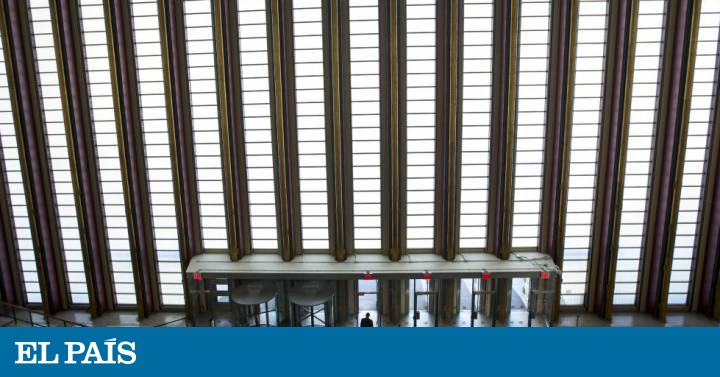A carpet at the entrance to the United Nations headquarters in New York contains verses by Saadi, the great 13th century Persian poet: “All human beings are part of the same body. When life affects a member, the rest of the body suffers equally. If you are not affected by the pain of others, it is that you do not deserve to be called human ”. Solidarity as a distinctive feature of humanity. The spirit of the organization that was born to preserve peace and global collaboration summed up in a few words.
Before covid-19 entered our lives, the world was preparing to celebrate the United Nations 75th birthday. Celebrate? Although memory is fragile and there have been many crises, the multilateral system born after World War II has never been so questioned.
Other articles by the author
Memories of the future
Epic of Blindness
The great disruption
My mother in law and Greta
Today the focus is on the World Health Organization, overwhelmed by the magnitude of the pandemic and turned into a target of the geopolitical battle between the United States and China. Before it was the World Trade Organization, trapped in a dead end, and the US abandonment of the Paris Agreement, and the misunderstanding of international public opinion due to the inability to stop the bleeding of conflicts like the one in Syria ...
It is obvious that the global governance system born in 1945 is not enough for the global challenges of the 21st century. Because the nature of these challenges has changed and because the country that launched the system, the United States, has given up on continuing to lead it. The coronavirus has revealed, even more so, its weaknesses. But there are also many calls to strengthen international cooperation. Voices that warn that, in the face of national and nationalist instincts, we can only emerge from crises like these together; that some globalization may be in decline, but that there are numerous threats that do not understand borders.
Among the defenders of multilateralism, the debates oscillate between those who believe that everything should be redone - a completely new structure -, those who advocate other types of institutions, such as the G20 - questionable, given its performance in this crisis - and those who support reform the current United Nations system - an idea parked in the limbo of the impossible.
A recent exercise aims to reactivate the latter. Global governance and the emergence of global institutions for the 21st century (Cambridge University Press) is an exhaustive and ambitious work that starts from a deep understanding of the institutional framework at its different levels: economic, social, environmental and security. Its authors, Augusto López-Claros, Arthur L. Dahl and Maja Groff, with a solid intellectual and practical career in fields such as economics, ecology and law, delve into the history of the system and the criticism received since its birth ( including his original sin, the veto power in the Security Council) by such prominent figures as Albert Einstein and Bertrand Russell.
The million dollar question is how to get the incentives to mobilize such a complex transformation at such a difficult time
From there, it thoroughly reviews the role of organisms, agencies and institutions and they propose concrete proposals for discussion, reform and improvement, some rescued from the United Nations' own initial design. To gain democratic legitimacy, for example, they are betting on bringing the organization closer to citizens through a World Parliamentary Assembly that would function similarly to the European Parliament. They also propose the creation of a Chamber of Civil Society, of an advisory nature, that recognizes the participation of non-governmental actors. The benchmarks are the NGO Forum prior to the 2000 Millennium Summit and its role in other multilateral advances such as the Paris Agreement, the Treaty on the Prohibition of Nuclear Weapons or the launch of the International Criminal Court.
The replacement of the Security Council by an Executive Council, the creation of an International Peace Force and an International Court of Human Rights, another anti-corruption, the revision of the global financial architecture to better fight poverty and inequality, an integrated approach to improve and expand the capacity of environmental governance ... are just some of the alternatives to the current system.
The million dollar question is how to get the incentives to mobilize such a complex transformation at such a difficult time. And there the authors see certain glimpses of hope. On the one hand, due to the large number of institutions and initiatives committed to promoting a new multilateral framework. This same book is the result of an award given by the Global Challenges Foundation, Sweden, after organizing a contest that received thousands of proposals from around the world. Added to this is an increasing awareness of global public opinion about common risks; just look at the extent of youth mobilizations for the defense of the planet.
It will be enough? The breakthrough in the birth of the UN was only possible after the greatest exercise in destruction in human history. Could the coronavirus - the biggest disruptor since World War II - be the engine to adapt global governance to the needs of the 21st century?
Cristina Manzano is the director of esglobal.
You can follow EL PAÍS Opinion on Facebook, Twitter or subscribe here to the Newsletter.

